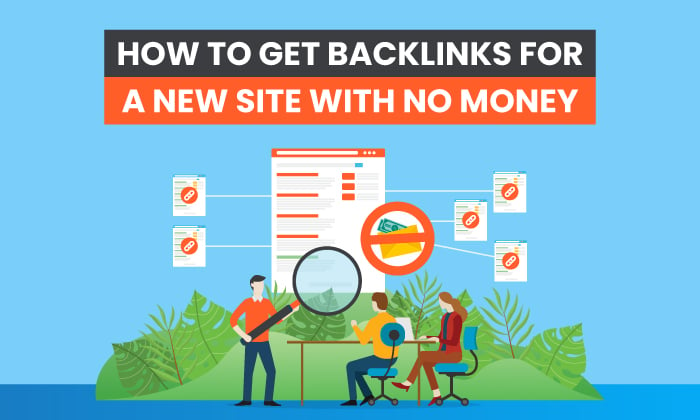- Joined
- Feb 5, 2018
- Messages
- 226
Hi there,
Getting your blog to show up among the top 10 results on Google for the keywords you want can get you lots of clicks every day. But, there's a lot of other blogs competing for those spots, so it's not as easy as just making a blog and expecting it to quickly become one of the top ones.

 www.forbes.com
www.forbes.com
It means consistently doing the right things and being a trusted source of helpful information for your readers.
It's a step-by-step process. If you keep following these steps consistently, your blogs are likely to show up in the top 10 rankings.
Look at what's already ranking in the top 10 for the keywords you want to use.
Google wants to show people reliable websites that give them the best answers. So, if you write about different topics that aren't related, Google might question your expertise. Your blogs should focus on what you know best and what your audience wants to read about.
This is where doing keyword research comes in handy.
You can use tools like https://neilpatel.com/ubersuggest/ to see how people search on Google. This can help you figure out what kind of content you should write. For instance, if you search for "investment banking," you might discover other related keywords like "investment banking salary," "investment banking analyst," and "investment banking jobs."

Once you have a list of important words, it's time to see what others are doing. You can use Ubersuggest or Google to look at the top 10 results and understand why they're doing well:
https://neilpatel.com/blog/how-long...-googles-search-results-a-data-driven-answer/
By checking out the other top-ranked pages, you can see what Google likes. This helps you understand what to aim for. Then, you can use what makes those pages successful and add your own unique style when writing about similar topics.
Step 2: Make Your Page SEO-Friendly
On-page SEO means organizing your webpage and its code to improve its chances of ranking higher in search results.
However, you also need to show that value to search engines. Google doesn't think like people do, so it doesn't understand content the same way your readers do. It has its own way of understanding information, almost like its own language. Your blog needs to communicate effectively with Google to rank in the top 10 search results
https://neilpatel.com/blog/google-page-experience/
Over the last ten years or so, and even now, they are incredibly good at grasping the meaning of words.

 neilpatel.com
neilpatel.com
However, if you want your webpage to appear for a particular keyword, you must include it.
https://neilpatel.com/blog/how-to-integrate-long-tail-keywords-in-your-blog-posts/
You can achieve this by adding keywords in different places:
Google knows how important it is for users to have a good experience, so a key part of your on-page SEO is meeting these criteria. Users prefer a website that's clean and loads quickly, so it's important to consider the following:
Is it that it takes forever to load? Or that buttons keep moving around when you're trying to click on them?
https://usabilitygeek.com/most-common-ux-mistakes/ Make people leave your page without interacting with the content.
Google doesn't want to direct people to websites that bother its users, so it pays attention to things like how fast the page loads.
https://neilpatel.com/blog/technical-seo-site-audit/
There are many tools available to help you with this and to show you how Google sees your website.

 neilpatel.com
neilpatel.com
These tools can provide valuable insights into how your site is doing and guide you on how to fix any issues.
For some people, this may seem intimidating and too technical, but it's an important step in improving your blog's ranking.
Just like in real life, we want proof that what we're told is reliable. Google wants the same for your blog.
Google wants to know who supports what you're saying, and it figures this out by looking at...
https://neilpatel.com/blog/how-to-build-high-quality-backlinks-in-a-scalable-way/
Imagine another neighbor joins the conversation. He's a painter and decorator. He says, "I agree, you should definitely invest in OPEL." Another person supports the advice, and he seems knowledgeable, so his opinion might count for something.
But then, Warren Buffett walks by and says, "You absolutely must buy OPEL stock." This recommendation carries a lot of weight because, well, he's Warren Buffett.
Backlinks work similarly. The more people who support what you say (by linking to you), and the more respected those people are, the more Google will trust your information.
Google's algorithm has gotten better at understanding the meaning behind content over time.
https://www.searchenginejournal.com/seo-guide/ranking-signals/#close.

 neilpatel.com
neilpatel.com
5.Make Useful Content
Blogs can be valuable to readers for various reasons: They solve problems, provide answers, entertain, or do a mix of these.
It's crucial to know your audience and what they want. If you understand what people are seeking and how they search, you can create detailed content that they'll love.

 www.forbes.com
www.forbes.com
Even if your website gets clicks, it's important that people engage with it to make it valuable. If your content is shallow and doesn't answer questions or help solve problems, you won't get the engagement you need.
If you're putting in the effort to create content and want your blog to rank on Google, make sure it's worth ranking by going the extra mile.

 neilpatel.com
neilpatel.com
Here are some tips for creating great content:

 neilpatel.com
neilpatel.com
https://www.smartinsights.com/traffic-building-strategy/offer-and-message-development/aida-model/
The AIDA Model is a popular marketing approach that can be useful for writing blogs. It's divided into four stages: awareness, interest, desire, and action, and can provide a good framework for organizing your articles.

First, you want to grab people's attention. How do you do that? Well, think about what would make them stop and look at your content, whether it's a catchy title or some cool pictures.
Once you've caught their eye, you need to keep them interested. If your opening paragraphs aren't good, you'll lose them quickly.
Now that they're interested, you want to make them really want what you're offering. Talk about the benefits and how your business can help them.
Finally, you need to get them to take action. Can you get them to explore more of your website, sign up for something, or buy your product? That's the real test.
Here are some common questions about ranking a blog:

 neilpatel.com
neilpatel.com

 neilpatel.com
neilpatel.com
Getting your blog to show up among the top 10 results on Google for the keywords you want can get you lots of clicks every day. But, there's a lot of other blogs competing for those spots, so it's not as easy as just making a blog and expecting it to quickly become one of the top ones.

Council Post: SEO For Beginners: Why A Plan And Consistency Are Key to Success
If you want to build a solid digital marketing strategy that has a cumulative effect, then SEO will be your foundation.
 www.forbes.com
www.forbes.com
It means consistently doing the right things and being a trusted source of helpful information for your readers.
It's a step-by-step process. If you keep following these steps consistently, your blogs are likely to show up in the top 10 rankings.
Look at what's already ranking in the top 10 for the keywords you want to use.
Google wants to show people reliable websites that give them the best answers. So, if you write about different topics that aren't related, Google might question your expertise. Your blogs should focus on what you know best and what your audience wants to read about.
This is where doing keyword research comes in handy.
You can use tools like https://neilpatel.com/ubersuggest/ to see how people search on Google. This can help you figure out what kind of content you should write. For instance, if you search for "investment banking," you might discover other related keywords like "investment banking salary," "investment banking analyst," and "investment banking jobs."

Once you have a list of important words, it's time to see what others are doing. You can use Ubersuggest or Google to look at the top 10 results and understand why they're doing well:
- How much do they write?
- What do they write about?
- What kind of website do they have (if it's .edu, it might be hard to compete with)?
https://neilpatel.com/blog/how-long...-googles-search-results-a-data-driven-answer/
By checking out the other top-ranked pages, you can see what Google likes. This helps you understand what to aim for. Then, you can use what makes those pages successful and add your own unique style when writing about similar topics.
Step 2: Make Your Page SEO-Friendly
On-page SEO means organizing your webpage and its code to improve its chances of ranking higher in search results.
However, you also need to show that value to search engines. Google doesn't think like people do, so it doesn't understand content the same way your readers do. It has its own way of understanding information, almost like its own language. Your blog needs to communicate effectively with Google to rank in the top 10 search results
https://neilpatel.com/blog/google-page-experience/
Over the last ten years or so, and even now, they are incredibly good at grasping the meaning of words.

Semantic Search: What is it & How Does it Affect SEO? - Neil Patel
In this blog, we go over what semantic search is, how it affects SEO, & examples of how it's used in the search engine results by Google. Read more.
However, if you want your webpage to appear for a particular keyword, you must include it.
https://neilpatel.com/blog/how-to-integrate-long-tail-keywords-in-your-blog-posts/
You can achieve this by adding keywords in different places:
- Headings
- Meta descriptions
- Image names
- Page text
- Alternative text for images
- URL
Google knows how important it is for users to have a good experience, so a key part of your on-page SEO is meeting these criteria. Users prefer a website that's clean and loads quickly, so it's important to consider the following:
- Avoid overloading with keywords.
- Optimize your images.
- Structure your page into easy-to-read sections.
- Avoid having too little content.
- Enhance Technical SEO
Is it that it takes forever to load? Or that buttons keep moving around when you're trying to click on them?
https://usabilitygeek.com/most-common-ux-mistakes/ Make people leave your page without interacting with the content.
Google doesn't want to direct people to websites that bother its users, so it pays attention to things like how fast the page loads.
https://neilpatel.com/blog/technical-seo-site-audit/
There are many tools available to help you with this and to show you how Google sees your website.

What is Google Lighthouse?
Google Lighthouse is a free tool that gives you powerful insights to help improve your website, but how and when should you use it
These tools can provide valuable insights into how your site is doing and guide you on how to fix any issues.
For some people, this may seem intimidating and too technical, but it's an important step in improving your blog's ranking.
- Get Backlinks
Just like in real life, we want proof that what we're told is reliable. Google wants the same for your blog.
Google wants to know who supports what you're saying, and it figures this out by looking at...
https://neilpatel.com/blog/how-to-build-high-quality-backlinks-in-a-scalable-way/
Imagine another neighbor joins the conversation. He's a painter and decorator. He says, "I agree, you should definitely invest in OPEL." Another person supports the advice, and he seems knowledgeable, so his opinion might count for something.
But then, Warren Buffett walks by and says, "You absolutely must buy OPEL stock." This recommendation carries a lot of weight because, well, he's Warren Buffett.
Backlinks work similarly. The more people who support what you say (by linking to you), and the more respected those people are, the more Google will trust your information.
Google's algorithm has gotten better at understanding the meaning behind content over time.
https://www.searchenginejournal.com/seo-guide/ranking-signals/#close.

How to Get Backlinks for a New Site with No Money
Meta: Learning how to get backlinks for your new website can help you kickstart your SEO game.
5.Make Useful Content
Blogs can be valuable to readers for various reasons: They solve problems, provide answers, entertain, or do a mix of these.
It's crucial to know your audience and what they want. If you understand what people are seeking and how they search, you can create detailed content that they'll love.

7 User Engagement Metrics That Influence SEO
Learn about the top 7 user engagement metrics that influence SEO and how you can use that information to get more traffic to your website.
 www.forbes.com
www.forbes.com
Even if your website gets clicks, it's important that people engage with it to make it valuable. If your content is shallow and doesn't answer questions or help solve problems, you won't get the engagement you need.
If you're putting in the effort to create content and want your blog to rank on Google, make sure it's worth ranking by going the extra mile.

The 10 Ingredients of Great Content Writing
High-quality content writing can be challenging, but getting it right is a repeatable process. Follow these 10 steps to nail it every time.
Here are some tips for creating great content:
- Be original: Share your own perspective and avoid repeating old ideas.
- Use catchy headlines: Make them short but interesting to grab attention.
- Make it actionable: Provide information that people can act on.
- Provide answers: Aim to answer common search queries effectively.
- Use reliable sources: Make sure your information is accurate by using trustworthy sources.
- Be thought-provoking: Encourage readers to think more deeply about the topic.
- Use visuals: Include images and videos to engage a wider audience.
- Be concise: Get straight to the point and avoid unnecessary details.
- Keep it up-to-date: Regularly update your website and blogs to keep the information current and relevant.

How to Create an Editorial Calendar That Will Streamline Your Content Strategy
Learn how to create an editorial calendar for your business to optimize your strategy and streamline your content marketing efforts.
- Follow the AIDA Model
https://www.smartinsights.com/traffic-building-strategy/offer-and-message-development/aida-model/
The AIDA Model is a popular marketing approach that can be useful for writing blogs. It's divided into four stages: awareness, interest, desire, and action, and can provide a good framework for organizing your articles.

First, you want to grab people's attention. How do you do that? Well, think about what would make them stop and look at your content, whether it's a catchy title or some cool pictures.
Once you've caught their eye, you need to keep them interested. If your opening paragraphs aren't good, you'll lose them quickly.
Now that they're interested, you want to make them really want what you're offering. Talk about the benefits and how your business can help them.
Finally, you need to get them to take action. Can you get them to explore more of your website, sign up for something, or buy your product? That's the real test.
Here are some common questions about ranking a blog:
- How do I do SEO for my blog?
- You can learn basic SEO from free resources or hire a digital marketing agency if you're working for a company blog.
- How long should my blog be?
- Experts suggest that for good Google ranking, your blog posts should be around 2,000 words.
- When is the best time to post a new blog article?
- Research shows that late Monday mornings are the best time for maximum traffic potential.
- How many blog posts should I write before going live?
- It's a good idea to have about 5 posts ready when launching your blog, so people can see the type of content you'll be sharing.

Target Audience: What is it, How to Define it & Examples
Defining your target audience is the first, essential step towards success for any company or business. Here's how to find yours.

How To Create Optimal User Experiences By Improving Your Website's Information Architecture
I was out of town the other day and needed to pick up a few items at the local supermarket. Even though I hadn’t been to that store, I managed to find what I needed easily and happily moved on. Why? Because the organization of the store follows the same logic as the supermarket in […]